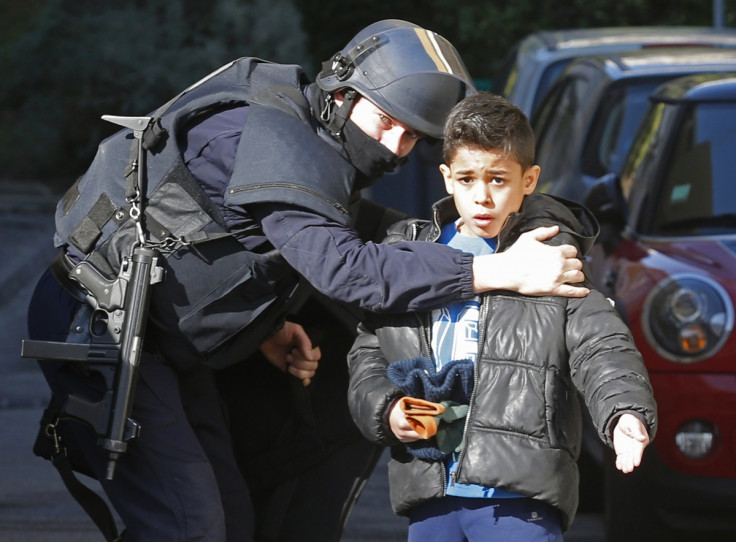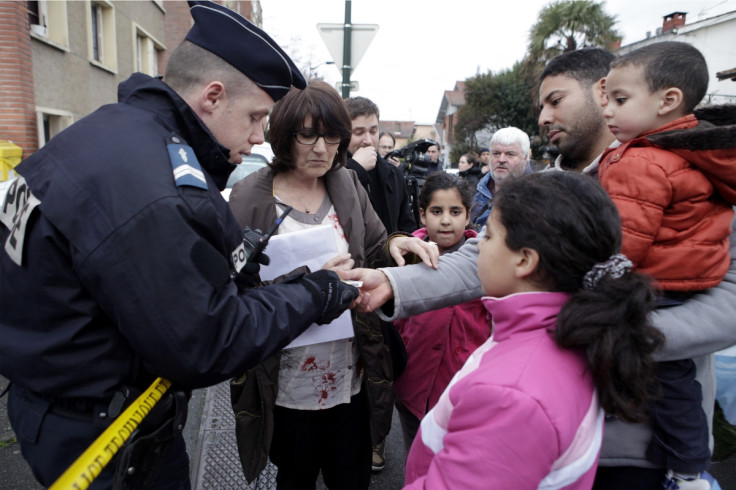France: Parents' anger as three-year-olds searched outside schools to deter IS terrorists

French parents have spoken about their anger after security forces searched children as young as three, as France battles the threat of jihadism.
The French state of emergency, which went into effect after the November 13 attacks on Paris that killed 130 and wounded more than 350, gives security forces extra powers to investigate and combat terrorists.
While civilians are being asked to stop, open their bags to disclose their content, unbutton their coats or answer security questions, children and their parents have had to go through these security measures in a kindergarten school in the north-west area of Lyon, called Mont d'Or.
While the village school's name has not been disclosed – to "preserve what little tranquillity is left" - newspaper Le Monde has revealed how the measures have angered local parents, who have had their bags, buggies, baby carriers and even their toddlers searched.
Three-year-olds searched in school
The "worst" of the measures came on Monday 16 November – three days after the terror attacks – a father, whose child attends the school, told the newspaper.
The father explained how children aged between three and six were asked to stay outside the kindergarten gate.
"(It was) impossible to get to the classes, and we had to leave our children outside the gates with no clear instruction," the father, whose four-and-a-half-year-old son attends the school, said.
"All this (the searches) are carried out quite randomly, sometimes by a security agent, and sometimes by the school director herself," he said, highlighting his anger when his son was asked to open his parka coat before he was "palpated".
"What are they looking for when they search the school bag of a child? What do they hope to find besides a snack, a soft toy for the small ones or a few books for the older ones?"
Strict measures 'to deter terrorists'
Lyon's Rector, who is part of the Ministry of Education, told the newspaper he could accept that the "emotion of some families, who regret that the atmosphere is not more reassuring, more serene," but denied "any over-zealousness" of the teaching staff. Le Monde contacted the school director, but she did not respond.
According to Le Monde, it was not the staff but the village mayor who took the initiative to apply these drastic measures. Indeed, the Ministry of Education's instructions outlined staff should check the identity of any stranger entering schools and visually check bags.

"I wanted our security response to be the same in every single public building of the village, would it be in the festival hall, the associative spaces, and schools: that every adult agrees to open bags and coats," the mayor – who has no political affiliation – said.
"There was the period before (the terror attacks) and we must accept the after," he added. "If terrorists target a school tomorrow, at least we would have done everything in our power to deter them from striking here."
Heightened security measures
France responded to attacks, which were claimed by the Islamic State (Isis), by adopting heightened security measures.
Before a vote on 19 November to approve an extension of the national state of emergency for three months, Prime Minister Manuel Valls, told the French Assembly that the increased security measures were "a short-term answer", but also a sign of France's strength. He insisted the new state of emergency measures should be included in the French Constitution to "give it a sound legal basis".
"It's the efficient response of a democracy, a free country," he said, adding that other liberties could be temporarily limited. "We're at war."
France could be facing a new threat less than a month after the deadly Paris attacks as alleged members of the IS (Daesh) have claimed ringleader Abdelhamid Abaaoud's younger brother Younes could be "on his way back" for revenge.
This week, the French government issued a series of safety instructions outlining actions to take in case of a terror attack.
Inspired by the safety instructions found in aircraft, the posters will be displayed in public spaces, including town halls, department stores, stadiums and museums, and will be published on the internet and social media.
© Copyright IBTimes 2025. All rights reserved.






















